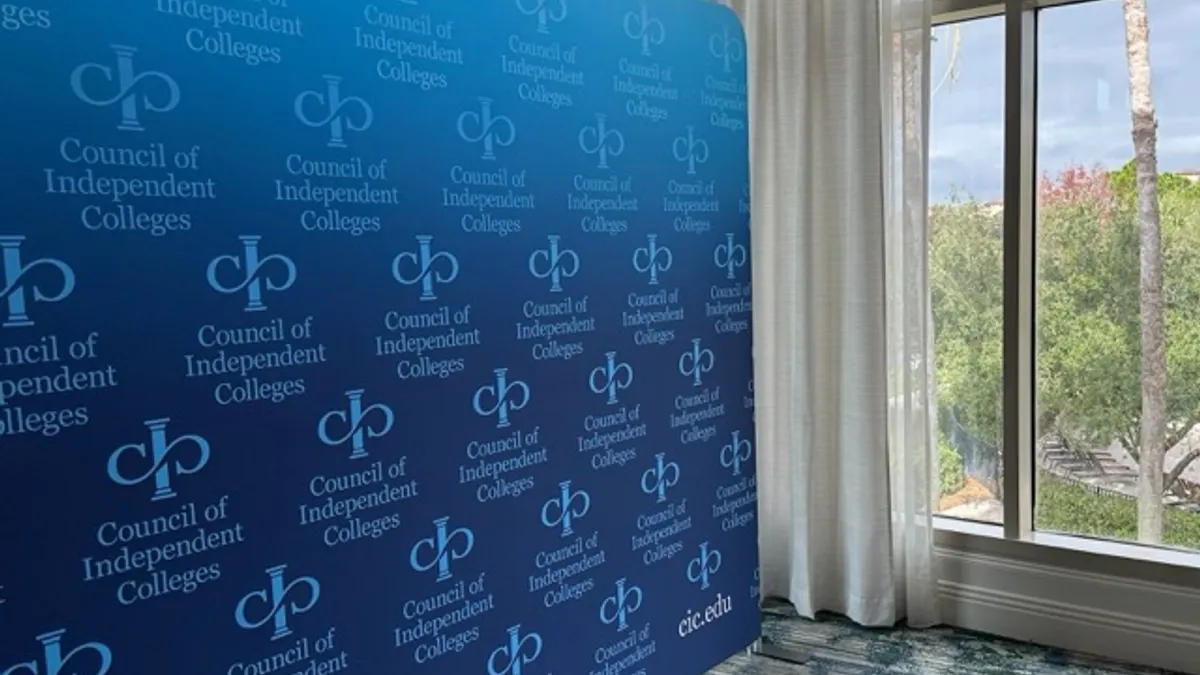Dive Brief:
- Nearly 4 in 5 surveyed Americans, 78%, said a college education is somewhat or very important to a young person's success, according to a new poll from researchers at Vanderbilt University.
- Despite increasing polarization around higher ed, a significant majority of both Democrats and Republicans — 87% and 68%, respectively — said a college education was at least somewhat important.
- The broadly favorable public sentiment comes amid the federal government's allegations of "violations, shortcomings and biases" at colleges, John Geer, head of the nonpartisan Vanderbilt Project on Unity & American Democracy, said in a Wednesday press release.
Dive Insight:
The Trump administration has increasingly targeted higher education, decrying colleges as hubs of liberal indoctrination and wastes of federal funding. Against this backdrop, Vanderbilt researchers polled 1,030 adults in English and Spanish from Sept. 5 to Sept. 8.
“Higher education has undoubtedly been a primary concern for President [Donald] Trump’s administration," Geer said. “Certainly, people expressed areas of concern and viewed certain institutions as more problematic than others, but support for colleges and universities remains substantial, even in the midst of these many criticisms from Washington," he said.
Nearly two-thirds of respondents, 65%, said colleges have a positive effect on society. A large majority of Democrats agreed with this statement, as did most of the "traditional" Republicans surveyed, according to the Wednesday release.
A deeper schism emerged from Republican respondents who identified with the Make America Great Again movement. Among those supporting MAGA ideology, 65% said colleges have a negative effect on the U.S.
In a February poll, Vanderbilt found that a majority of Republicans surveyed, 52%, identified with the MAGA movement — though slight, it was the first majority since researchers began asking the question in June 2023.
The September survey also found a broader skepticism of some aspects of higher education that transcended political divides. Among the overall respondent pool, 67% said ideological or political bias is at least somewhat of a serious problem at colleges. Within that share, 35% said bias is a problem at most institutions.
However, the respondents who said political bias exists on campuses did not broadly fault academic instruction. About 2 in 5, or 43%, blamed administrative decisions, while 16% cited what is being taught in the classroom.
Nearly three-quarters of respondents, 71%, said colleges should not "take official positions on controversial political issues." Broken down by political party, 83% of Republicans and 59% of Democrats concurred with that statement.
"That mix of skepticism and expectation underscores how difficult it will be for colleges to persuade the public that they are neutral arbiters in a polarized environment," Vanderbilt said.
The public showed mixed opinions on different types of institutions, the poll found.
For instance, 70% of respondents expressed confidence in community colleges. Vanderbilt researchers noted that community colleges "have largely avoided the controversies embroiling larger, wealthier institutions."
But that confidence level dropped sharply for Ivy League institutions. Less than half of those surveyed, 48%, expressed a somewhat or very favorable opinion of those eight universities.
What’s more, respondents' view of the Ivies varied significantly by their political party. Among Democrats, 72% approved of Ivy League universities, compared to just 33% of Republicans.
Other colleges earned a similar approval rating as the Ivies but with a smaller political divide.
Just 2 in 5 respondents expressed overall confidence in colleges in the Southeastern Conference, which includes the University of Georgia, the University of Tennessee and Mississippi State University among its 16 members.
About half of Republicans, 51%, expressed a favorable opinion of those institutions, as did 33% of Democrats.










